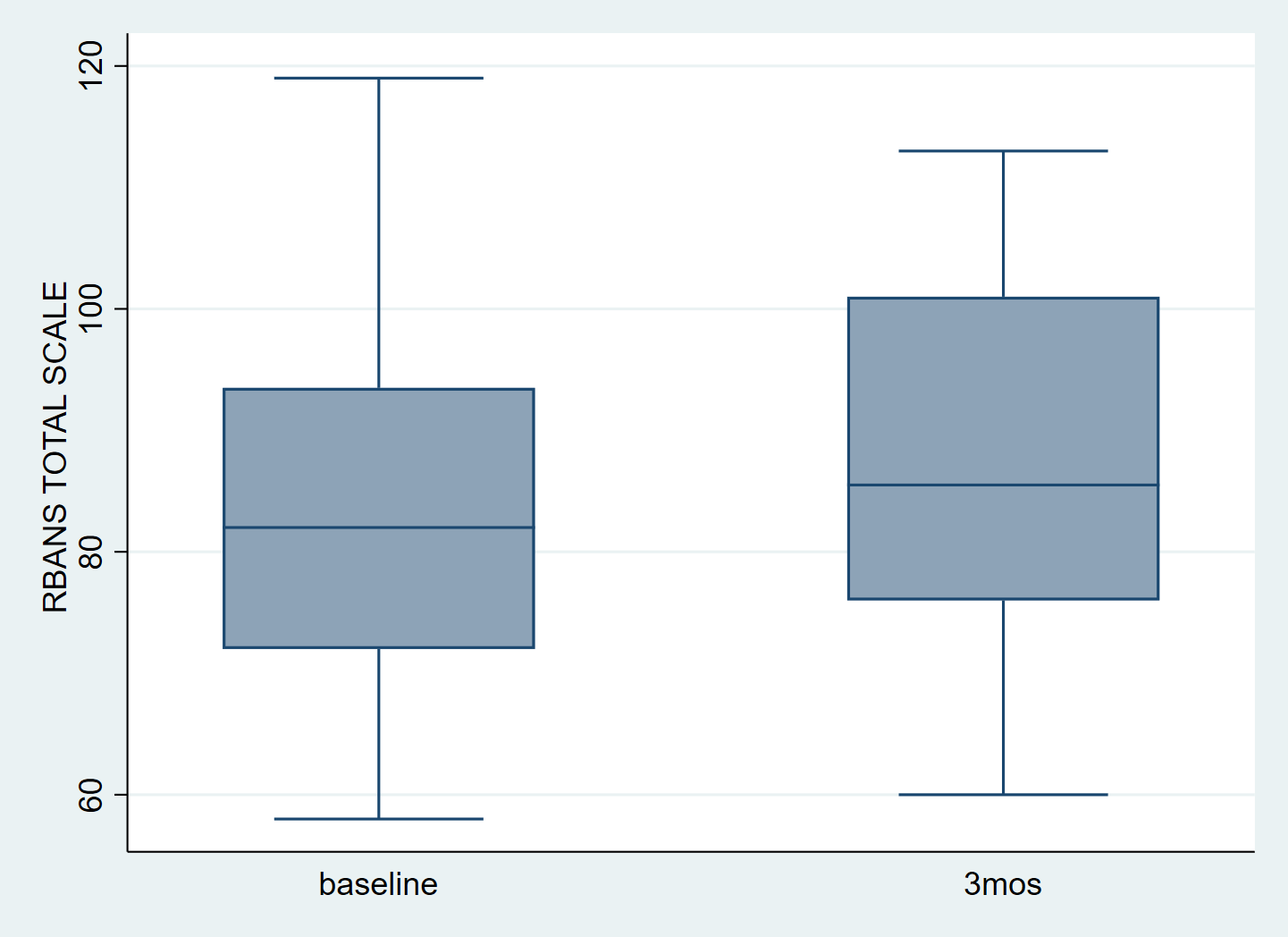The Effect of Kidney Transplantation on Neurocognitive Function: A Prospective Study
B. P. Concepcion, J. C. Jackson, A. Kiehl, R. Adu-Boahene, E. Collar, M. Reed, M. Sika, J. Van, R. C. Forbes
Vanderbilt University Medical Center, Nashville, TN
Meeting: 2019 American Transplant Congress
Abstract number: 244
Keywords: Kidney transplantation, Psychosocial
Session Information
Session Name: Concurrent Session: Kidney Psychosocial I: Cognitive and Behavioral Factors
Session Type: Concurrent Session
Date: Monday, June 3, 2019
Session Time: 2:30pm-4:00pm
 Presentation Time: 3:30pm-3:42pm
Presentation Time: 3:30pm-3:42pm
Location: Room 302
*Purpose: The effect of kidney transplantation on global cognition and executive function in patients with advanced kidney disease is unknown.
*Methods: We prospectively enrolled patients scheduled or called in for kidney transplantation in a single center to undergo neurocognitive performance testing. We assessed global cognition and executive function prior to and at 3 months post-transplant utilizing the Repeatable Battery for Assessment of Neuropsychological Status (RBANS), and the Trail Making Test (TRAILS) Parts A and B. Neurocognitive scores were compared to population age-adjusted means, and mean scores at baseline and 3 months were compared using Wilcoxon rank sum test. Cognitive impairment was defined as having a score 1.5 standard deviations below the population mean.
*Results: Thirty-four patients were enrolled in the study: mean age 46±12 years, 48% female, 83% white, 60% on HD, 23% pre-emptive, 31% diabetic. Thirty-two patients underwent kidney transplantation: 53% from a living donor, 19% had delayed graft function, no acute rejection, and all on tacrolimus-based immunosuppression. Thirty-two and 30 patients underwent baseline and 3 month post-transplant RBANS, respectively. RBANS population age-adjusted mean scores improved from baseline (84±14) to 3 months (87±15), though not significant statistically, p=0.33. Thirty-four percent of patients at baseline and 30% at 3 months had impaired global cognition (score <78).For the TRAILS tests, 34 and 32 patients underwent baseline and 3 month post transplant testing, respectively. Although TRAILS A mean t-scores increased from baseline (41±10) to 3 months (45±11), this was not statistically significant, p=0.16. TRAILS B mean t-scores improved significantly from baseline (41±11) to 3 months (48±12), p=0.016. The proportion of patients with cognitive impairment (score <=35) decreased from baseline to 3 months in both TRAILS A (38% to 22%) and B (29% to 16%).
*Conclusions: A significant proportion of kidney transplant candidates have impaired global cognition. This persists at 3 months post-transplant although in this small sample, there is a trend towards improvement. Longer-term follow-up and assessment of methods to improve or support cognitive function in this population are warranted.
To cite this abstract in AMA style:
Concepcion BP, Jackson JC, Kiehl A, Adu-Boahene R, Collar E, Reed M, Sika M, Van J, Forbes RC. The Effect of Kidney Transplantation on Neurocognitive Function: A Prospective Study [abstract]. Am J Transplant. 2019; 19 (suppl 3). https://atcmeetingabstracts.com/abstract/the-effect-of-kidney-transplantation-on-neurocognitive-function-a-prospective-study/. Accessed January 6, 2026.« Back to 2019 American Transplant Congress

